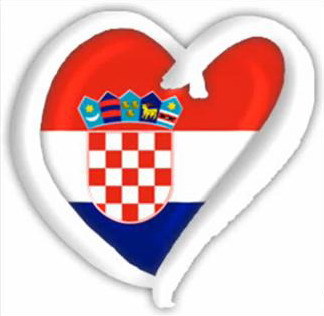CROATIA 
CROATIAN STUDENTS:
In this survey, 94 students took part. The majority of them was 8-11 years old (79.8%) and the rest 6-7 (17%) and 12-15 (3.2%). The most of them had never participated in an Erasmus+ project in the past (71.3%). It is very important that most of them (97.8%) believe that it is quite much important to have knowledge about energy and nature and they get great joy in taking part in the project (92.5%).
- They consider that the areas they were most benefited were team work and cooperation (69.1%), knowledge (41.5%), respect on diversity (26.6%), socialization and communication (40,4%), critical thinking (24.5%), responsibility (31.9%) and improvement in foreign languages (27.7%).
- The activities they liked the most were Experiments Day (61.7%), getting to know our partners (42.6%) and the environment around us (33%), the meteorological station was a very popular activity (23.4%), followed by teleconferences (28.7%), Christmas cards and visits, using ICT.
CROATIAN PARENTS:
Thirteen parents answered the Parents’ Questionnaire, 100% women. The majority of them belong to the 36-45 age group (53.8%), 46.2% are 20-35 years old. More than half of them, 65.3% are secondary education graduates. Most of them (53.8%) had heard about the project by the teachers of the school and 46.2% by the children or other parents. All parents strongly believe that a European program is an asset for the students’ education. 61.5% never participate in an Erasmus project before, whereas 100% consider that is necessary for students to learn about the importance of energy and environment. Most of them consider that activities developed were informative and safe for the children (92.3%). Their children had a lot to get from the project (98.3%). All of them claim that their children liked to work into the project (100%).
- The benefit sectors that the parents consider higher were teamwork and cooperation (92.3%), socialization and communication (61.5%), respect on diversity (46.2%), critical thinking (38.5%), responsibility (53.8%) and improvement in foreign languages (30.8%).
- 53.8% would help in connecting school with various services and others would help in producing and implementing ideas, 46.2% of parents would involve in collecting materials, 69.2% parents said that they couldn’t help more because lack of the time.
CROATIAN TEACHERS:
Six Croatian teachers answered the questionnaire; all women aged 36-45 60%. One of her is English teacher and the rest are all primary teacher. All of them owned a post-graduate degree. Just one teacher was experienced in European projects. All of them believe that all objectives of the project for this first year achieved totally or merely.
- The benefits mentioned by the teachers were too many. The most popular were Knowledge on science, ICT, foreign languages. Teamwork between pupils, teachers and schools. Meeting other cultures. Chance to avoid class routine. They stressed that most important part is to participate in mobility.
- They want to stress that there is many activities in short period and one teacher said that language is sometimes obstacle for her involvement.
- All of them believe that the project has strong or quite positive impact on school and educational community since mostly it strengthens the European dimension of the school and boosts the close cooperation between school, families and local community.
- Activities developed during the first year in the Croatian school: Drawing about the four elements. Logo of the project. Getting to know the partner countries and schools and presenting our school, town, country. Day of European Languages. Participating in common story about the Mascot of the project. Four elements around us – photos. CLIL activities for Christmas and 4 elements. Elements in literature. Creating texts about the four elements. Experiments Day for the four elements. Meteorological station. Europe Day. Experiments Day.
LINKS TO QUESTIONAIRES